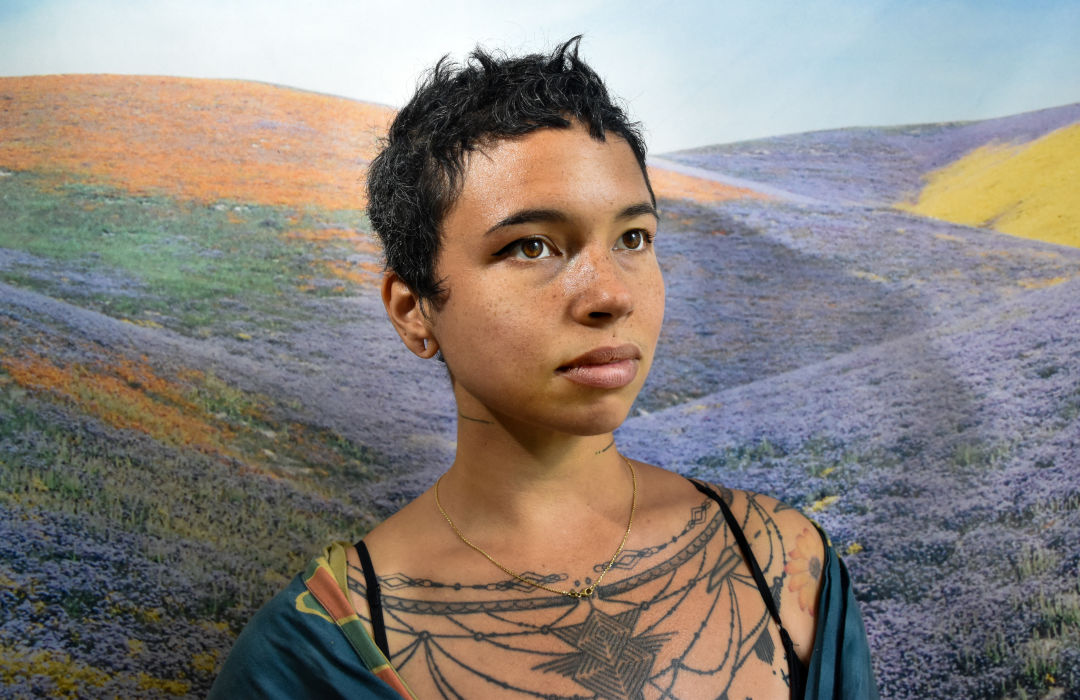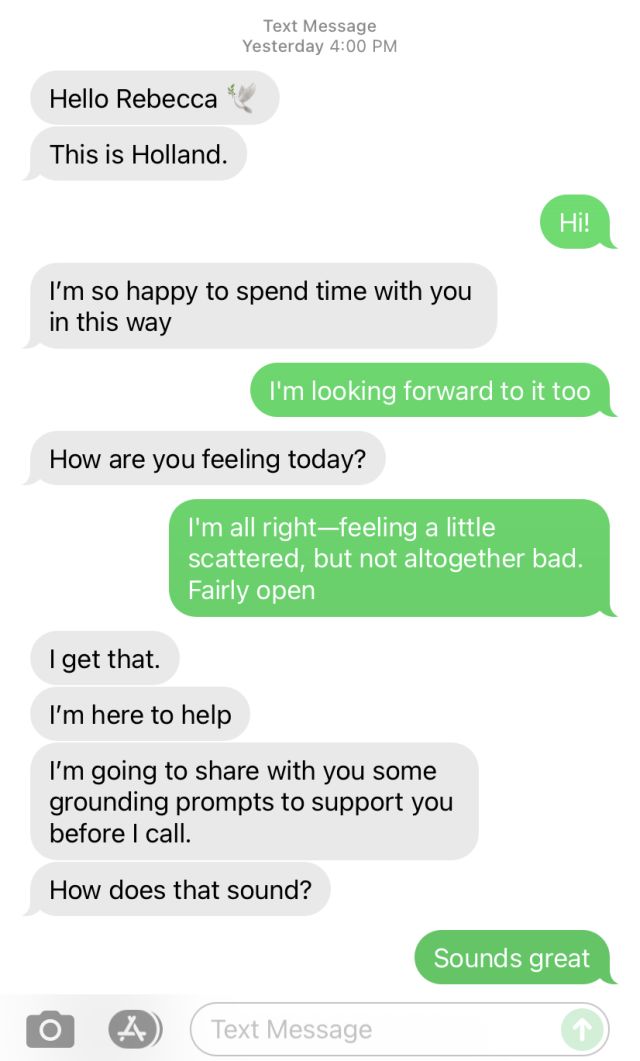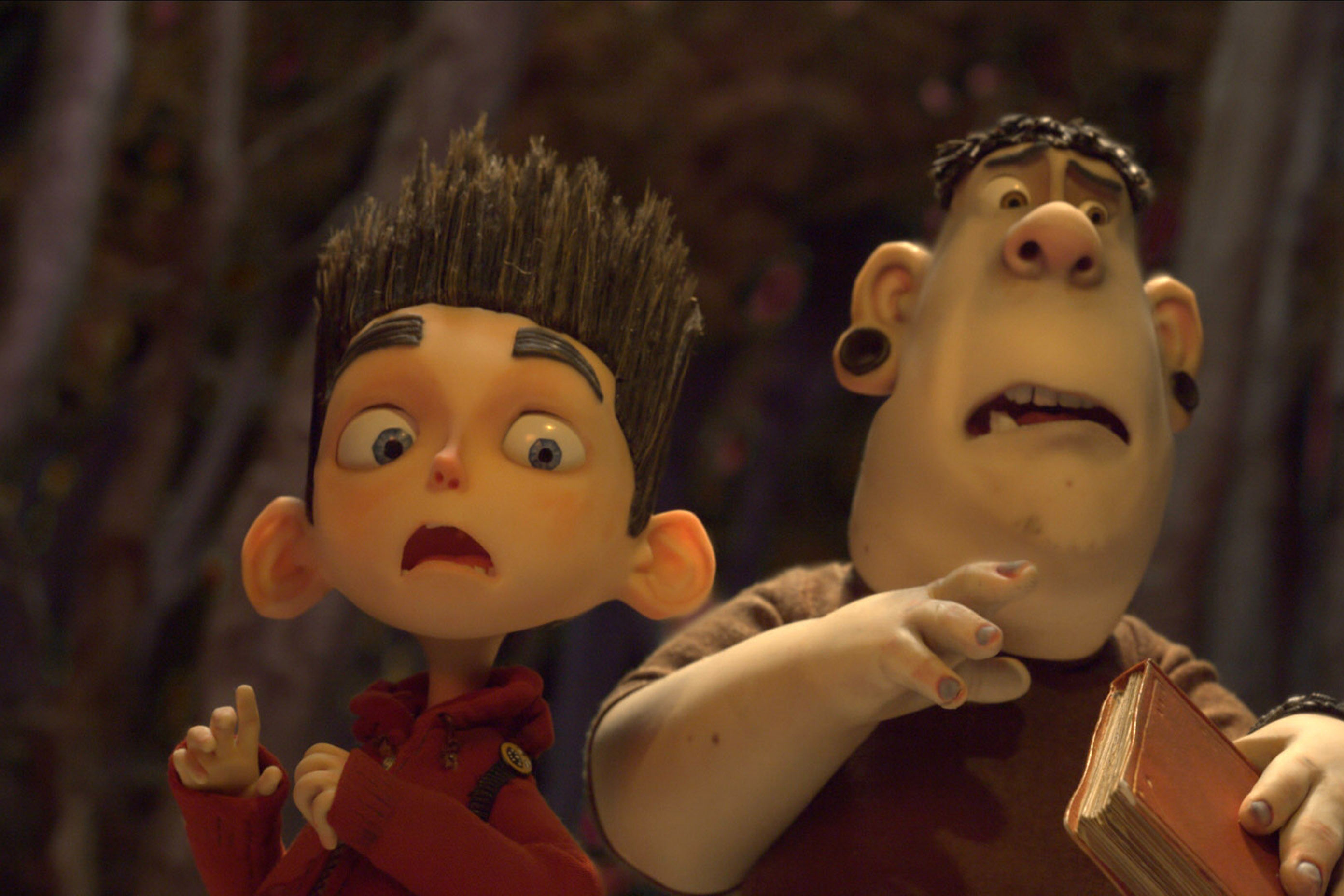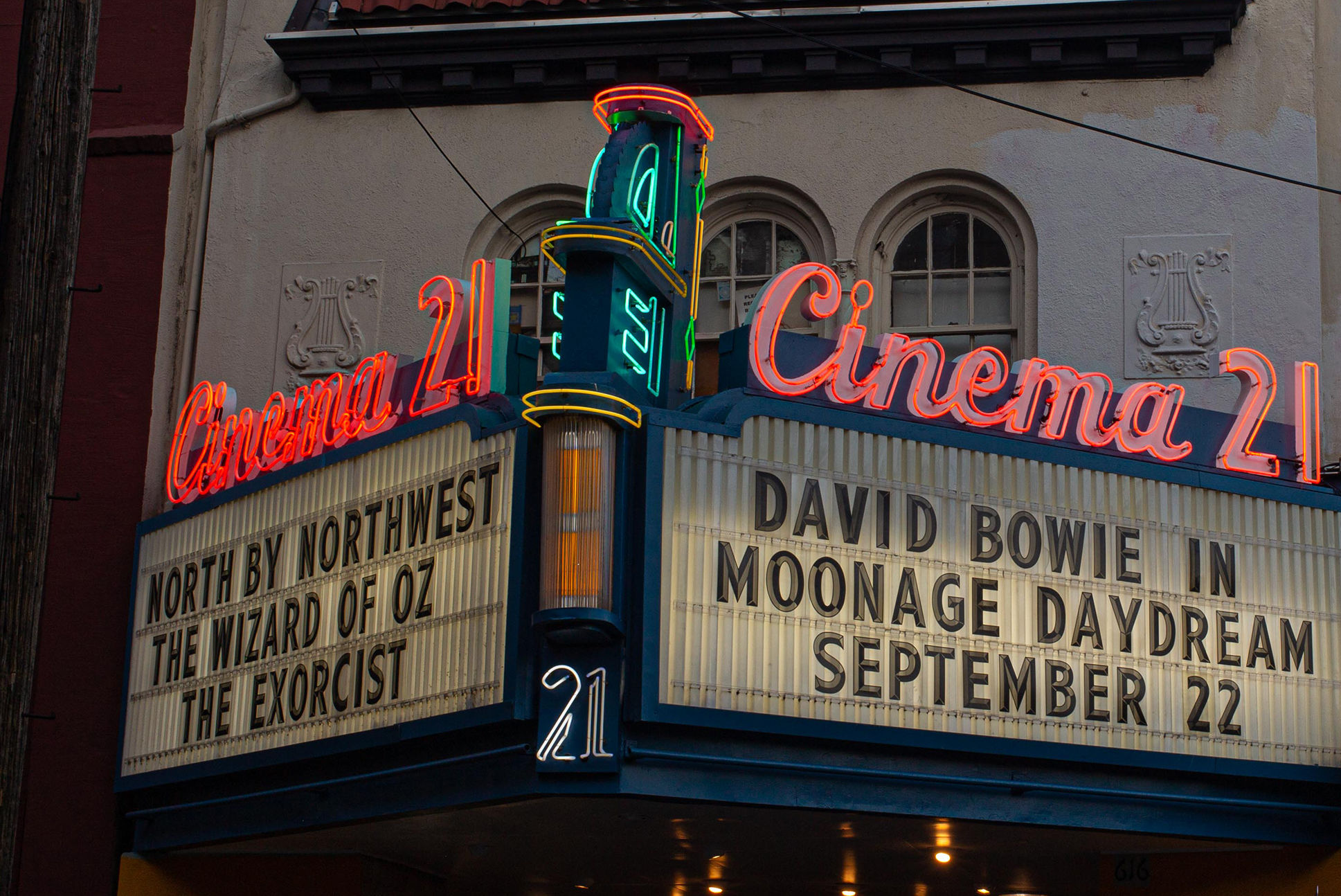At TBA 2021, Holland Andrews Gives Tender Micro-Concerts Over the Phone

Artist Holland Andrews
Image: Ariel Crocker
At home on Saturday afternoon, I rolled out a yoga mat and lay down on the floor. I guided my back over a bolster, tucked a pillow beneath my neck, and pulled a blanket across my body. I wiggled my toes and let my feet fall open. I sighed. Then I waited for Holland Andrews to sing to me over the phone.
Time-Based Art audiences are well-acquainted with Andrews, the experimental, genre-eluding musician who moved to Brooklyn in 2019 after a decade in Portland. They played the festival for the first time in 2013, giving an improvised concert that looped voice and clarinet and ultimately found them on their knees, keening over the reverb. A few years later, they teamed up with choreographer and musician Dorothée Munyaneza for a piece about the 1994 Rwandan genocide, again looping and distorting sounds to near-operatic crescendos. Two years ago, they opened the festival, barefoot on the stage in a diaphanous dress, eschewing words as they voyaged to the outer reaches of their vocal range, as at home in a jaunty lilt as a curling yowl.

Image: Rebecca Jacobson
There You Are is Andrews’s 2021 offering, and it’s a good deal more intimate than their previous TBA appearances. Developed in an artist residency interrupted by the pandemic, these are tiny concerts, delivered one-on-one over the phone—in my case, on the third day of fall, on one of those sunny afternoons still clinging to summer. At 3:55 p.m., Andrews texted me. They were looking forward to the performance, they wrote. At 4, another text: how was I feeling today?
“All right,” I replied. “A little scattered, but not altogether bad. Fairly open.”
“I get that,” Andrews wrote. “I’m here to help.”
What came first was a guided visualization via text message. Which, really, is not the best delivery method for that sort of thing: it’s tough to imagine your insides as a glowing orb of light when you’re periodically squinting at a glowing screen for instructions about what to picture next. Each time my phone buzzed, my neck twitched unhappily.
But soon, a giddiness-inducing message: “I will call momentarily.”
When that call arrived, I hit play on the audio file that had arrived by email an hour before. And for the next 10 minutes, over a rising drone, Andrews sang to me in a raspy trill. “It’s no accident you’re here,” they sang, over and over, finding meditation in the repetition. As they continued to repeat lyrics—about living in strange and uncertain times, about releasing shame, about letting things be scary—I found myself softening. A few minutes in, I felt a smile form.
Little was novel about Andrews’s counsel, in sentiment or in language. But it was present, immediate, and alive, their voice on staticky speakerphone over the shimmering drone. As they repeated the piece’s title—“there you are, there you are”—it felt like a small but vital acknowledgment of our mutual existence.
For Andrews knows not just how to demand attention, but how to bestow it: There You Are is a lovely snippet of tenderness from a stranger, and also a demonstration of performance as care.




